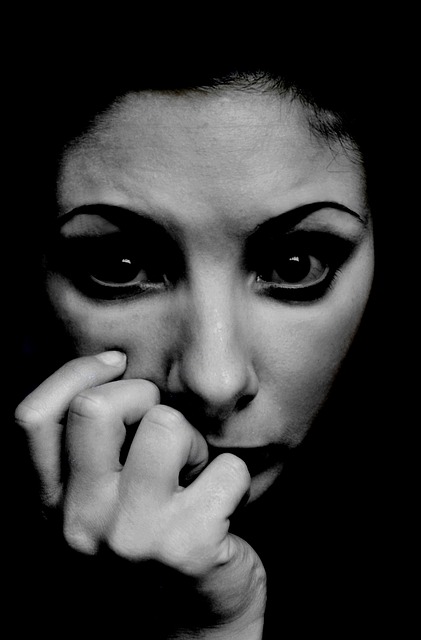
10 Behaviors That May Make Anxiety Worse
Forty million Americans, or 18 percent of the population, struggle with anxiety disorders, which are, collectively, the most common mental illness in the US.1 While anxiety is a normal response to stress, in some people the anxiety becomes overwhelming and difficult to cope with, to the point that it affects their day-to-day living.
There are a variety of anxiety disorders, each with varying symptoms, but most involve what can be incapacitating fear and worry. A sense of dread is also common, and the feelings persist for months, even when there’s no real reason to feel anxious.
October 1, 2015 | Source: Mercola | by Dr. Mercola
Forty million Americans, or 18 percent of the population, struggle with anxiety disorders, which are, collectively, the most common mental illness in the US.1 While anxiety is a normal response to stress, in some people the anxiety becomes overwhelming and difficult to cope with, to the point that it affects their day-to-day living.
There are a variety of anxiety disorders, each with varying symptoms, but most involve what can be incapacitating fear and worry. A sense of dread is also common, and the feelings persist for months, even when there’s no real reason to feel anxious. Examples of anxiety disorders include:
|
Generalized Anxiety Disorder (GAD) |
Panic Disorder |
|
Social Anxiety Disorder |
Specific Phobias |
|
Obsessive-Compulsive Disorder (OCD, closely related to anxiety disorders) |
Post-Traumatic Stress Disorder (PTSD, closely related to anxiety disorders) |
10 Behaviors That May Make Your Anxiety Worse
John D. Moore, PhD is an anxiety therapist in Chicago, Illinois. In a report for Psych Central, he explained there are 10 specific behaviors people engage in unintentionally that may make their anxiety worse.2
Dr. Moore suggests “rethinking your relationship with anxiety so that it becomes more manageable,” and a first step to doing that is to recognize potentially self-defeating habits. Don’t judge yourself if you recognize these habits, rather make a point to try to turn the behaviors around.
1. Denial
Do you deny that you suffer from anxiety? This can backfire and may amplify your feelings. This is particularly true if you struggle with OCD or specific phobias.
2. Avoidance
Hiding from your fears or apprehensions may seem like a reasonable way to beat anxiety, but it’s likely to make your fears expand. Dr. Moore uses the example of a fear of driving on highways. If you avoid highways and opt for side roads, you may soon start to fear driving on fast side streets as well.
3. Fishing for Reassurances
Fishing for reassurance from those around you may reinforce your core irrational belief and contribute to toxic thinking. For example, if you feel anxious about your body image, asking someone “I’m not fat, am I?” will not make you feel better, because the question already implies you think you are fat.
4. Magical Thinking
Magical thinking is part of a family of cognitive distortions in which you cling to the hope that you’ll receive an instant cure for your anxiety. You probably won’t be able to “wave a magic wand” and have your anxiety disappear, but you can look toward improving and reducing your symptoms.
5. Relying on Herbal Drinks
Chamomile tea and other herbal beverages may provide some relief from your anxiety symptoms, however they won’t help heal the underlying causes. If you become too reliant or hooked on herbal remedies, this temporary crutch may end up making your anxiety worse.
6. Thought Stopping
Some people with anxiety snap themselves with a rubber band or other device to stop anxious thoughts. This may offer momentary relief, but the thoughts will return, possibly with increased vigor than before. Dr. Moore notes, “The more you try to ‘control’ your anxiety, the more power you give it.”
7. Relying Only on Medications
Relying on anxiety medications may offer some relief, especially if your anxiety is severe, but it shouldn’t be viewed as an exclusive coping strategy. There are serious side effects to consider, and, like herbal drinks, medications are only a surface-level fix, not a “cure.” As Dr. Moore explained:
“Think about it – what will happen when the medication doesn’t work as well as it used to? Also, what will happen if you decide to come off the medication?
This is why it is important to combine medications with other treatment approaches, such as strength training and talk therapy – preferably with a CBT [cognitive behavioral therapy] slant.”
Commonly prescribed medications include benzodiazepine drugs like Ativan, Xanax, and Valium. They exert a calming effect by boosting the action of a neurotransmitter called gamma-aminobutyric acid (GABA) in the same way as opioids (heroin) and cannabinoids (cannabis) do. This in turn activates the gratification hormone, dopamine, in your brain.
Since the identical brain “reward pathways” are used by both types of drugs, they can be equally addictive and also may cause side effects like memory loss, hip fractures, impaired thinking, and dizziness.
